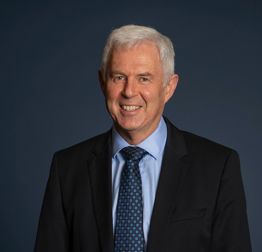Introduction
The recent High Court case of Seales v Attorney-General has generated much discussion about the law on assisted dying in New Zealand. This update sets out a brief overview of the relevant law and discusses the Seales v Attorney-General case, including what the case might mean for the future.
A brief overview of the law
The act of suicide is not a crime in New Zealand. However, certain provisions of the Crimes Act address suicide and assisted dying. Key amongst these is section 179, which provides:
Every one is liable to imprisonment for a term not exceeding 14 years who:
a) incites, counsels, or procures any person to commit suicide, if that person commits or attempts to commit suicide in consequence thereof; or
b) aids or abets any person in the commission of suicide.
The law of homicide is also relevant, as a deliberate act to assist a person's death will likely amount to culpable homicide (section 160). Importantly, section 63 also states that no one has a right to consent to their death and section 164 provides that someone may be criminally responsible for another's death even if their conduct served only to hasten that death.
In the particular context of assisted dying, the "doctrine of double effect" is also relevant. That doctrine is yet to be fully tested in the New Zealand courts but in the English case of Airedale NHS Trust v Bland [1993] AC 789 (HL), Lord Goff described the principle as:
.. the established rule that a doctor may, when caring for a patient who is, for example, dying of cancer, lawfully administer painkilling drugs despite the fact that he knows that an incidental effect of that application will be to abbreviate the patient's life ...
Seales v Attorney General
Ms Seales was terminally ill with a brain tumour. She wanted to have the option of determining when she died. To this end, Ms Seales sought declarations from the High Court about the legality of her having assistance to end her life by way of fatal medication. The declarations that Ms Seales sought broadly fell within two categories, the criminal law declarations and the New Zealand Bill of Rights Act (NZBORA) declarations.
The criminal law declarations
Ms Seales sought two criminal law declarations. The first was a declaration that her doctor would not commit murder or manslaughter if she assisted Ms Seales to die either by administering or 'making available' a fatal medication. The second was a declaration that her doctor would not, in the same circumstances, be assisting Ms Seales to commit 'suicide' (as prohibited by section 179).
Among other things, Ms Seales argued that section 179 was designed to protect vulnerable individuals in society and that it should therefore not apply to 'rational' suicides such as in her case. It was also argued, based both on philosophical and ethical principles and on relevant international case law, that the 'rational' decision to end one's life in the particular circumstances at hand did not constitute suicide for the purposes of the Crimes Act.
The NZBORA declarations
Ms Seales also sought declarations that the relevant provisions of the Crimes Act are inconsistent with the right to life and the right not be subjected to torture or cruel treatment as contained in sections 8 and 9 of the NZBORA.
Consistent with the recent Canadian Supreme Court decision of Carter v Canada (Attorney-General) [2015] SCC 5, it was argued that if the law prevented a doctor from assisting Ms Seales, then Ms Seales would have to consider taking her own life while she was capable of doing so. On this basis, Ms Seales argued the current criminal provisions were inconsistent with her right to life, as protected by section 8 of the NZBORA.
In terms of section 9, Ms Seales argued that "by depriving her the opportunity to bring her suffering to an end, the state, through the offence provisions of the Crimes Act, is subjecting her to cruel, degrading or disproportionately severe treatment."
The decision
Although recognising "the significance of the issues to New Zealand society raised by Ms Seales' case", Justice Collins ultimately concluded that he was "unable to issue any of the declarations sought".
In terms of the criminal law declarations, Justice Collins did not accept the interpretive and other arguments put forward. After considering the legislative history and a range of other authorities, he concluded that "the criminal law declarations sought by Ms Seales invite me to change the effect of the offence provisions of the Crimes Act. The changes to the law sought by Ms Seales can only be made by Parliament." He also commented that "Ms Seales' doctor would be exposed to prosecution" if she assisted Ms Seales to die in the way envisaged.
In terms of the NZBORA declarations, while Justice Collins accepted that the right to life was engaged in this case, he ultimately found that the interference with that right was based upon grounds established by law, and was not arbitrary nor grossly disproportionate.
In terms of section 9, Justice Collins did not agree that Ms Seales' right to be free from torture or cruel treatment was engaged in the circumstances, describing that right as "very inapt to convey the idea that the state must guarantee individuals in Ms Seales' circumstances a right to die".
Justice Collins concluded his decision by observing that:
Although Ms Seales has not obtained the outcomes she sought, she has selflessly provided a forum to clarify important aspects of New Zealand law. The complex legal, philosophical, moral and clinical issues raised by Ms Seales' proceedings can only be addressed by Parliament passing legislation to amend the effect of the Crimes Act … the fact that Parliament has not been willing to address the issues raised by Ms Seales' proceeding does not provide me with a licence to depart from the constitutional role of Judges in New Zealand.
What has happened since?
The decision preserved the status quo. However, since the judgment was released, discussion on the legalisation of assisted dying has continued. Prime Minster John Key has indicated that the Government would not sponsor a bill on the issue, on the basis that assisted dying is an issue of individual conscience. ACT leader David Seymour has said that he is in the process of drafting a private member's bill on the issue.
A governmental inquiry was also announced on 22 July 2015. This inquiry is to be carried out by the Health Select Committee and follows a petition requesting Parliament to "investigate fully public attitudes towards the introduction of legislation which would permit medically-assisted dying in the event of a terminal illness or an irreversible condition which makes life unbearable". Although only time will tell, the Seales case and the upcoming Parliamentary inquiry could well be a catalyst for legislative change in this area.
Lecretia Seales died of natural causes on 5 June 2015.
Questions?
The case discussed in this update is Seales v Attorney-General [2015] NZHC 1239. A full copy of the Judgment can be found here.





